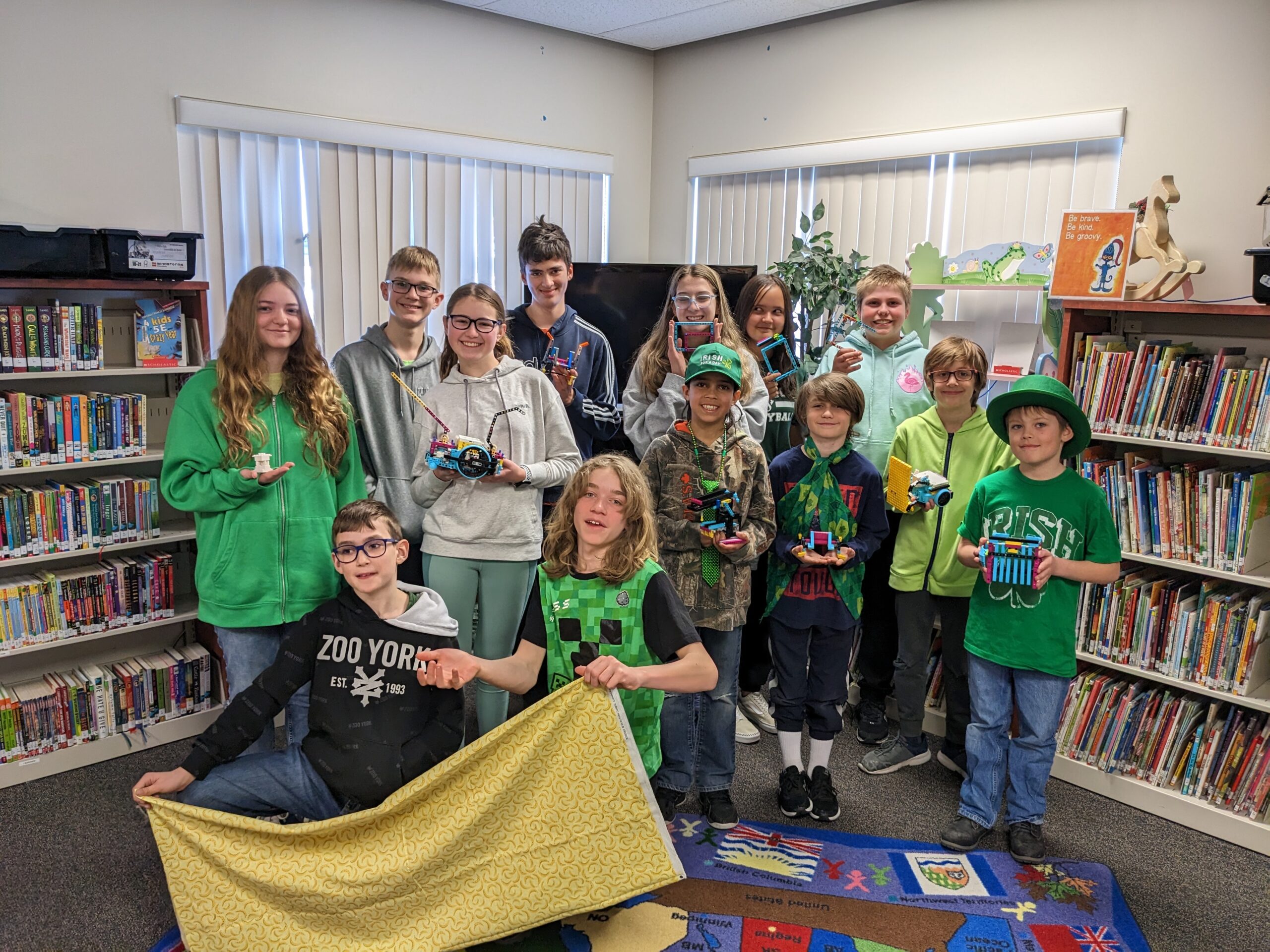The Langdon Schools robotics club competed in the First Lego League Alberta Championships.
On March 4, two club groups, the Banana Bots and the Dregos, travelled to Red Deer to show off autonomous Lego robots they worked to code, engineer, and program since September.
The First Lego League theme changes each year and challenges students to research real-world problems and create innovative solutions by designing and building a robot. The student’s robot must then complete missions on a playing field, the First Lego League website explained.
“We had to build a robot to complete missions on a Lego board,” said Dregos member, and Grade 6 student Rhylen Smith. “We presented different aspects, and different projects, like the innovation project, which was a way to show an idea that matched the theme of Superpower, and ways to save energy.”
Grade 7 student and member of the Banana Bots Scarlett Harris explained that at first, her group made a custom design, and tried to create a quick attachment. However, the group quickly ran into challenges, because the robot wasn’t steady.
The group decided to go back to their design from last year because they knew it worked well.
“The changes didn’t work, and we had to come up with a new design for the attachments,” Harris said.
The Banana Bots ran into another unexpected challenge during the championships, as each mission area was set up differently.
“Sometimes the mat was oily, or the robot tires were dirty, which made the robot mess up, or the mission wasn’t set up properly so the robot didn’t work how it should have,” Harris said.
When engineering and programming the robots, the Dregos group worked on two robots simultaneously.
“Having two robots allowed us to have two people testing at the same time, and we had people designing attachments,” Grade 6 student Jack Isaac said. “Everyone was doing their own job getting the robot working how we wanted it to.”
Langdon Assistant Principal Norman Ellis noted that building the robot didn’t take much time, but finding a robot design that worked was the bigger challenge.
“It went through a few iterations, and a few design changes until they got it,” Ellis said. “They were making changes to the overall design of the robot and the design until the very end.”
During the championships, the Dregos group received the Breakthrough Award.
“Our robot kept spinning whenever we had to do a mission. After the first competition, Jack and I went back to the code and started to fix it, and when we came back, we scored more points,” Smith said.
Students were first interested in joining the robotics club after hearing from their friends about the club, but quickly realized they enjoyed building, collaborating with other students, and being part of a team.
“I’ve always been interested in engineering, and persevering through problems, which is one of the main things you have to do,” Isaac said. “When I found out there was a robotics program, and you have to make an invention for a project, I really liked that, and I wanted to try it out. I really liked it and being part of the team.”
“I always wanted to be a mechanical engineer, and I’m good at building. One of my friends told me about it, I wanted to try it out, and I liked it a lot,” said Grade 4 student and member of the Banana Bots, Chase Chubey.
For students, having the opportunity to compete against other students from across the province was a highlight.
“A lot of our kids were a lot younger than the other teams, but our kids came out and performed step for step with them,” Ellis said. “That was a big takeaway for the kids, that it doesn’t matter what grade you are in, if you take time and put the work into it, you can compete with anybody.”
Ellis explained that the club gives students an opportunity to see that learning continues outside of school, and not only teaches students engineering and programming but also how to present their ideas to a group in an effective way.
“There’s the engineering and programming aspect, but there’s also the presentation of big ideas and not being afraid to share it with the world, which is such a transferrable skill outside of the school,” Ellis said.
“They got help and guidance along the way, but it was all them. They took a keen interest and showed great pride,” he added. “It developed some real-world skills.”









